
Why These 5 Indian Startups Failed & What You Can Learn
Why these 5 Indian startups failed—TinyOwl, Stayzilla, Frankly.me, Doodhwala & Tapzo. RedCarpetLife reveals key mistakes and lessons every entrepreneur must learn from these failures.
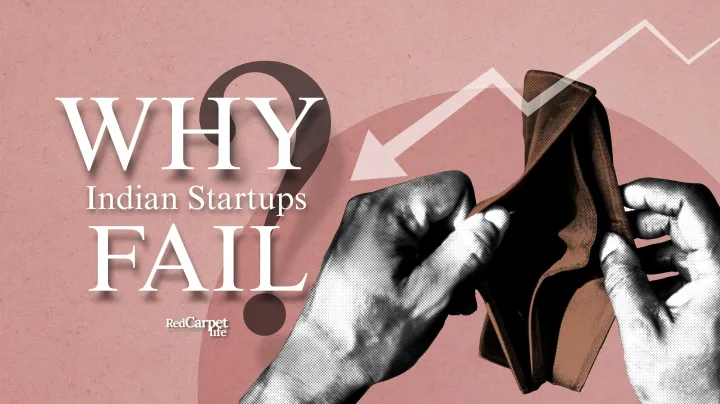
In recent years, India has emerged as one of the world’s leading hubs for startups, with thousands of young ventures hoping to become the next big thing. From flashy product launches to funding rounds worth crores, these businesses often start with sky-high expectations. But behind the glamour lies a harsh reality, many promising startups fail to survive. Whether due to flawed business models, poor timing, or leadership missteps, failure stories are more common than we think.
At RedCarpetLife, we studied the journeys of five Indian startups that failed and dug deep into what really went wrong. From product mismatches to leadership flaws, we’ve broken down the real reasons behind these failures.
This article is not just a list, it’s a playbook of what not to do. If you're a founder, investor, or simply startup-curious, these stories of collapse will help you recognise red flags early, avoid costly missteps, and grow with clarity and confidence.
Why These 5 Indian Startups Failed?
1) TinyOwl
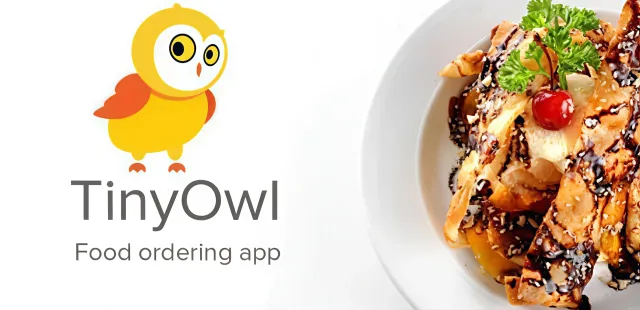
Founders: Harshvardhan Mandad, Gaurav Choudhary, Saurabh Goyal, Tapan Das, and Shreedhar Lawand
Type: Food Delivery Platform
Founded: 2014
Headquarters: Mumbai, India
Funding: Raised approx. $27 million from Sequoia Capital, Nexus Venture Partners, and others
What it was:
TinyOwl was a location-based food ordering app designed to connect users with nearby restaurants and enable quick food delivery. It gained early traction in Mumbai and was seen as a strong competitor to emerging players such as Zomato and Swiggy.
Why it failed:
TinyOwl expanded aggressively into multiple cities before streamlining its core operations. The logistics network became strained, customer experience declined, and large-scale layoffs sparked major controversies, including employee lock-ins at branch offices. The rapid scaling burned through cash, and eventually, the company was absorbed into Roadrunnr before shutting down completely.
Mistakes to Learn:
- Expanding too fast without market readiness or operational strength
- Failing to manage internal communication and crisis handling
- Neglecting sustainability in favour of short-term growth metrics
2) Stayzilla
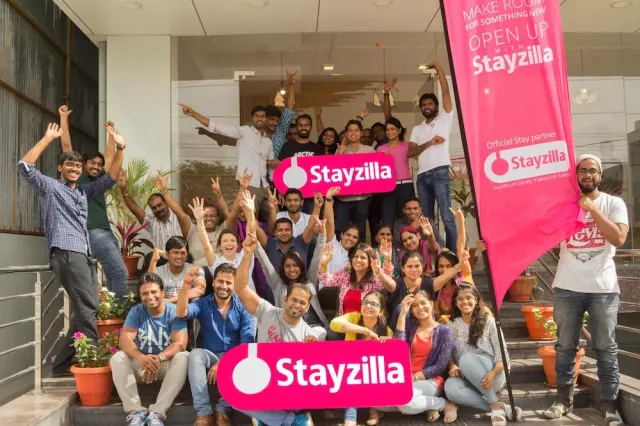
Founder: Yogendra Vasupal
Type: Homestay and Hotel Booking Platform
Founded: 2005
Headquarters: Chennai, India
Funding: Over $33 million from Matrix Partners, Nexus Venture Partners, and others
What it was:
Stayzilla started as a hotel aggregator and later pivoted to become a homestay marketplace, trying to compete with giants like Airbnb in India. It aimed to create a trusted platform connecting travellers with unique stays and hosts across the country.
Why it failed:
Despite strong funding, Stayzilla struggled with low demand in tier-2 and tier-3 cities. Its pivot to homestays lacked strong execution, and the company couldn't differentiate itself in an increasingly competitive travel tech market. Mounting losses, lack of sustainable revenue, and internal challenges forced it to shut down in 2017.
Mistakes to Learn:
- Weak product-market fit in non-metro regions
- Confused business model after pivot
- Lack of clear competitive edge in a saturated space
3) Frankly.me
Founders: Nikunj Jain and Abhishek Gupta
Type: Video Q&A Social Media App
Founded: 2014
Headquarters: Noida, India
Funding: Raised seed funding from Matrix Partners
What it was:
Frankly.me was a video Q&A platform that allowed users to ask questions to celebrities, influencers, and public figures who responded with short video answers. It gained initial traction through media partnerships and celebrity campaigns.
Why it failed:
Despite a unique concept, Frankly.me struggled with user retention and lacked a monetisation strategy. The engagement was short-lived, content creation declined, and the app failed to build a strong daily active user base. It eventually shut down operations quietly by 2016.
Mistakes to Learn:
- Inability to scale user engagement beyond initial hype
- No clear revenue model for long-term sustainability
- Relying too heavily on influencer buzz without community depth
4) Doodhwala
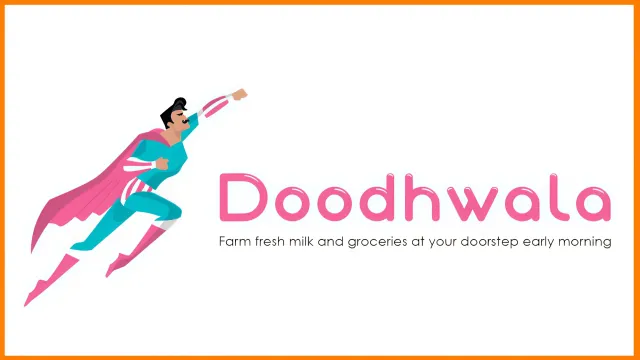
Founders: Aakash Agarwal and Ebrahim Akbari
Type: Milk and Daily Essentials Delivery App
Founded: 2015
Headquarters: Bengaluru, India
Funding: Raised over $2.2 million from Omnivore and others
What it was:
Doodhwala was a hyperlocal subscription-based delivery platform that focused on fresh milk and daily essentials. It promised doorstep delivery before 7 AM and operated in major South Indian cities with a niche, loyal customer base.
Why it failed:
The unit economics of hyperlocal delivery proved unsustainable. Logistics costs were high, margins were low, and scaling operations increased the burn rate. Despite having a clear niche, Doodhwala couldn’t secure enough funding to stay afloat and was eventually acquired by FreshToHome in 2019.
Mistakes to Learn:
- Unsustainable cost structure in hyperlocal delivery
- Low-margin products need high volume to profit
- Inability to raise funds for long-term expansion
5) Tapzo (formerly Helpchat)
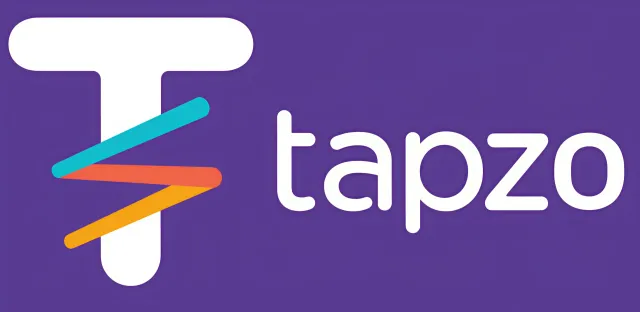
Founder: Ankur Singla
Type: All-in-One App (Payments, Cabs, Recharge, News, etc.)
Founded: 2010 (as Akosha)
Headquarters: Bengaluru, India
Funding: Over $18 million from Sequoia Capital and others
What it was:
Tapzo began as a consumer complaint redressal platform (Akosha), pivoted to a personal assistant chat app (Helpchat), and finally rebranded as Tapzo — an all-in-one app that bundled services like cab booking, bill payments, news, and more under one roof.
Why it failed:
Tapzo lost focus after multiple pivots. The app tried to do too many things at once without excelling in any one category. Consumer confusion, increased competition from dedicated apps like Paytm, Uber, and Google Pay, and high customer acquisition costs led to its decline. Tapzo was acquired by Amazon Pay in 2018 and shut down.
Mistakes to learn:
- Too many pivots diluted brand identity
- Lack of focus on core strengths
- Trying to be everything for everyone, and failing to dominate in any vertical
5 Key Mistakes Behind These Failed Indian Startups
- Premature Scaling Without Operational Readiness TinyOwl expanded too fast across cities without building a solid logistics and service backbone.
- Weak Product-Market Fit Stayzilla misjudged demand in non-metro regions and failed to tailor its offering to market needs.
- No Sustainable User Engagement Strategy Frankly.me couldn’t retain users beyond the initial buzz and lacked a clear monetisation model.
- Unsustainable Unit Economics Doodhwala’s low-margin delivery model couldn’t support its cost-heavy operations at scale.
- Lack of Focus Due to Frequent Pivots Tapzo kept changing its business model, confusing users and diluting brand value.
Failure Is a Brutal but Honest Mentor
Startup journeys are rarely linear. While success stories often dominate headlines, it’s the failures that offer deeper insight into what truly makes or breaks a business. As we saw with TinyOwl, Stayzilla, Frankly.me, Doodhwala, and Tapzo, even great ideas with solid funding can fall apart if execution, timing, or direction go wrong.
What stands out across these stories is that failure rarely happens overnight. It creeps in through overlooked problems, ignored feedback, or chasing growth without stability. For aspiring entrepreneurs, these real-world collapses serve as powerful case studies, reminding us that building a startup isn't just about innovation, but also discipline, adaptability, and clarity of vision.
At RedCarpetLife, we believe that learning from failed Indian startups is just as important as celebrating the ones that make it. Use these lessons as a mirror, and perhaps your venture will be the one that doesn't just survive, but leads.
Join the RedCarpet Circle
Get the latest stories, celebrity updates, and premium features straight to your inbox.
Related Keywords
Advertisement